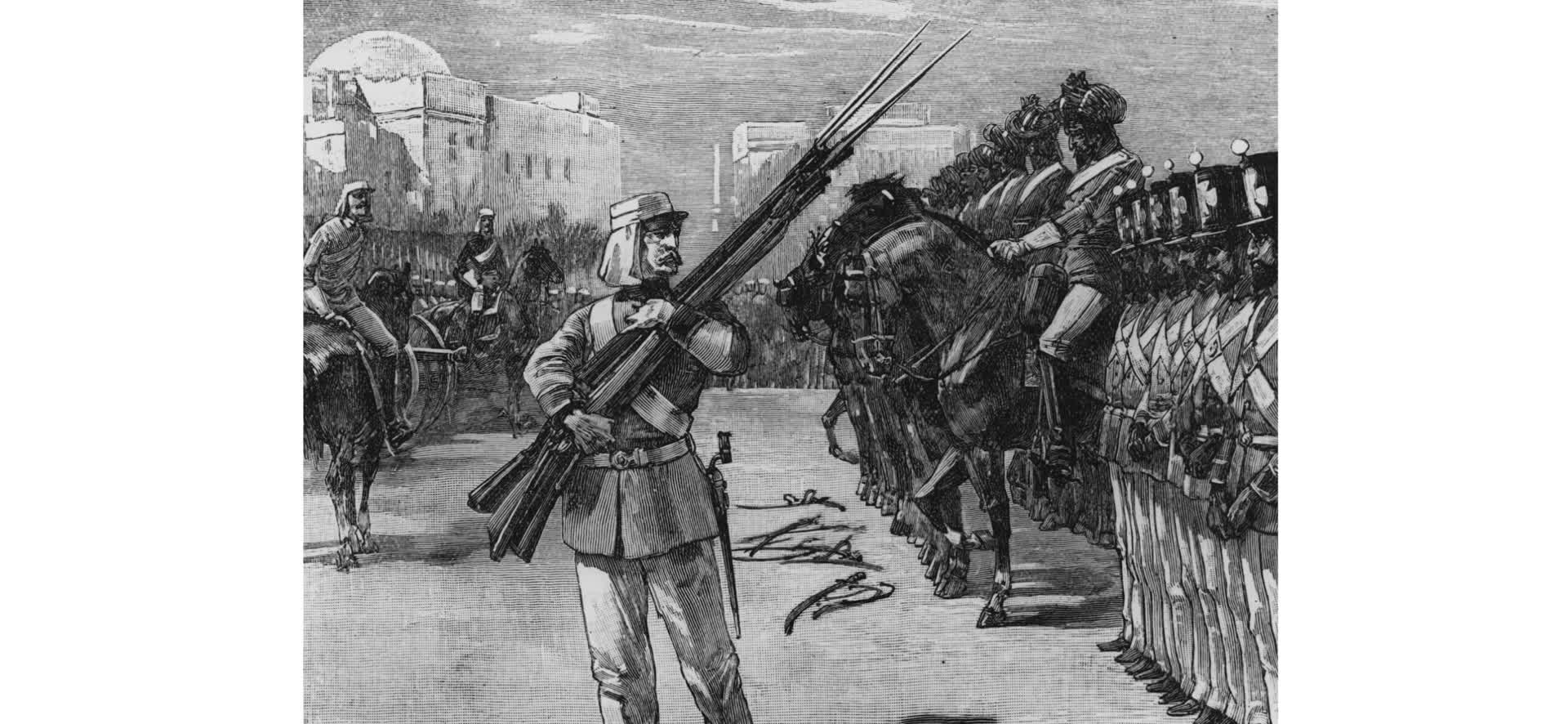Hindustani78
Senior Member
- Joined
- Nov 19, 2017
- Messages
- 1,326
- Likes
- 386
Posted at: Jan 2, 2018, 12:10 AM; last updated: Jan 2, 2018, 12:10 AM (IST)
Govt nod to 1857 heroes’ memorial in Ambala
http://www.tribuneindia.com/news/haryana/govt-nod-to-1857-heroes-memorial-in-ambala/522141.html
Tribune News Service
Ambala, January 1
With administrative approval given to the project to built ‘Shaheed Samarak’ to commemorate the sacrifice of 1857 revolt heroes by the Information, Public Relations and Languages Department, the work on the long pending project is expected to start soon.
While holding a ‘Janta Darbar’ here at the PWD rest house in Ambala Contonment, Health Minister Anil Vij directed the higher officials of the Public Works Department (PWD) to float a tender for the project soon. He said the work on this project would be started as soon as the tender process was completed.
“With the completion of the project, Ambala Cantonment will have a unique identity at international level,” he said.
Vij has shown personal interest in the construction of the ‘samarak’ and had also directed the officials concerned repeatedly to expedite the process.
The Ambala Municipal Corporation has already transferred 22-acres of land to the Information and Public Relations Department on Ambala-Delhi National Highway, near IOCL depot, for this project. The project was first conceived in 2010 by the then Chief Minister, Bhupinder Singh Hooda. However, due to political wrangling, the foundation stone had to be called off thrice from 2010-14.It was finally laid by Chief Minister Manohar Lal Khattar in May 2015.
The previous government had got its design prepared, but the incumbent government has got it changed. The design of the monument has now been prepared by a national-level designing agency. Along with all the required facilities, arrangements will be made for a helipad for the convenient transportation of tourists.
The 1857 revolt was the first struggle for freedom which was started at Ambala Cantonment on May 9. Thus, it had been decided that a memorial would be built here. The approximate cost of the project is Rs323 crore.
The memorial will have a museum to display weapons used by the war heroes, children park, an auditorium and a helipad. The auditorium hall will have a capacity to host 500 people.
Besides this, there is a plan to build a library, audio-video museum, gallery and food court as well.
Laser shows will also be showcased at night to present the life of revolutionaries and the events of the Revolution of 1857. Project approved in 2010
Govt nod to 1857 heroes’ memorial in Ambala
http://www.tribuneindia.com/news/haryana/govt-nod-to-1857-heroes-memorial-in-ambala/522141.html
Tribune News Service
Ambala, January 1
With administrative approval given to the project to built ‘Shaheed Samarak’ to commemorate the sacrifice of 1857 revolt heroes by the Information, Public Relations and Languages Department, the work on the long pending project is expected to start soon.
While holding a ‘Janta Darbar’ here at the PWD rest house in Ambala Contonment, Health Minister Anil Vij directed the higher officials of the Public Works Department (PWD) to float a tender for the project soon. He said the work on this project would be started as soon as the tender process was completed.
“With the completion of the project, Ambala Cantonment will have a unique identity at international level,” he said.
Vij has shown personal interest in the construction of the ‘samarak’ and had also directed the officials concerned repeatedly to expedite the process.
The Ambala Municipal Corporation has already transferred 22-acres of land to the Information and Public Relations Department on Ambala-Delhi National Highway, near IOCL depot, for this project. The project was first conceived in 2010 by the then Chief Minister, Bhupinder Singh Hooda. However, due to political wrangling, the foundation stone had to be called off thrice from 2010-14.It was finally laid by Chief Minister Manohar Lal Khattar in May 2015.
The previous government had got its design prepared, but the incumbent government has got it changed. The design of the monument has now been prepared by a national-level designing agency. Along with all the required facilities, arrangements will be made for a helipad for the convenient transportation of tourists.
The 1857 revolt was the first struggle for freedom which was started at Ambala Cantonment on May 9. Thus, it had been decided that a memorial would be built here. The approximate cost of the project is Rs323 crore.
The memorial will have a museum to display weapons used by the war heroes, children park, an auditorium and a helipad. The auditorium hall will have a capacity to host 500 people.
Besides this, there is a plan to build a library, audio-video museum, gallery and food court as well.
Laser shows will also be showcased at night to present the life of revolutionaries and the events of the Revolution of 1857. Project approved in 2010
- The project was first conceived in 2010 by the then Chief Minister, Bhupinder Singh Hooda.
- However, due to political wrangling, the foundation stone had to be called off thrice from 2010-14.
- It was finally laid by Chief Minister Manohar Lal Khattar in May 2015.
- The previous government had got its design prepared, but the incumbent government has got it changed.
- The design of the monument has now been prepared by a national-level designing agency.

